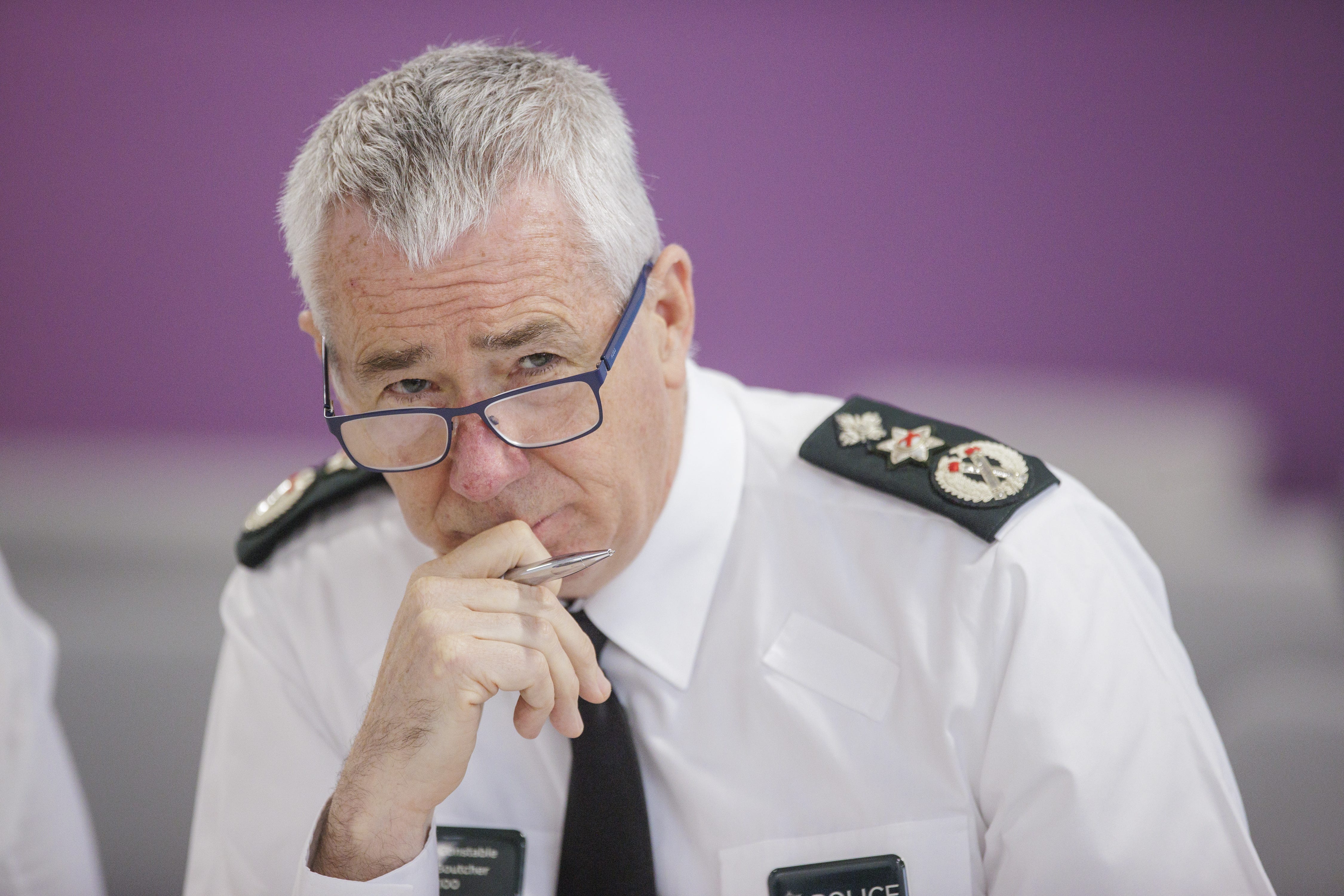Boutcher set to deliver report on claims police spied on journalists and lawyers
The Policing Board leadership said Chief Constable Jon Boutcher has been told the claims were causing damage to policing.

Your support helps us to tell the story
From reproductive rights to climate change to Big Tech, The Independent is on the ground when the story is developing. Whether it's investigating the financials of Elon Musk's pro-Trump PAC or producing our latest documentary, 'The A Word', which shines a light on the American women fighting for reproductive rights, we know how important it is to parse out the facts from the messaging.
At such a critical moment in US history, we need reporters on the ground. Your donation allows us to keep sending journalists to speak to both sides of the story.
The Independent is trusted by Americans across the entire political spectrum. And unlike many other quality news outlets, we choose not to lock Americans out of our reporting and analysis with paywalls. We believe quality journalism should be available to everyone, paid for by those who can afford it.
Your support makes all the difference.Police Service of Northern Ireland (PSNI) Chief Constable Jon Boutcher has confirmed he will provide a public report on the extent of police surveillance of lawyers and journalists, the Policing Board has said.
The leadership of the board, the oversight body for the PSNI, said it had told Mr Boutcher that “damage is being done” to public confidence in policing by claims made during a tribunal hearing that surveillance was carried out on the phone data of journalists.
However, Amnesty International said the proposed publication of the PSNI report is “wholly insufficient” to restore public confidence, adding the force cannot be “allowed to mark its own homework”.
Board chairman Mukesh Sharma and vice chairman Brendan Mullan met Mr Boutcher on Wednesday.
A hearing of the Investigatory Powers Tribunal (IPT) in London last week heard claims that police in Northern Ireland undertook six-monthly trawls of the phone data of “troublemaker” journalists to see if they were in contact with officer sources.
It came during a hearing of a case examining allegations that investigative reporters Barry McCaffrey and Trevor Birney were subject to unlawful covert intelligence by the police.
A Policing Board statement said: “The board chair and vice chair met with the Chief Constable and impressed upon him the damage that is being done to public confidence in policing as a result of the revelations from the Investigatory Powers Tribunal.
“The Chief Constable has confirmed that the board will be provided at its June meeting with a report on the extent of the surveillance of legal professionals and journalists, and that this will be made public.
“Our human rights adviser will also have full access to all the material that informs the report in order to provide assurance on legal compliance.
“The Chief Constable shares our concerns and has advised that he intends to develop an additional review mechanism to examine and address the issues raised.”
We welcome the continued commitment of the Chief Constable to openness and transparency
The statement added: “Today’s meeting was constructive, and we welcome the continued commitment of the Chief Constable to openness and transparency.”
Patrick Corrigan, Amnesty International’s Northern Ireland director, said: “Publication of this report will be an important next step on the road to full disclosure.
“But by itself, this is wholly insufficient.
“No police force can be allowed to mark its own homework.
“In Northern Ireland, that is the job of the Policing Board.”
He added: “That is why Amnesty International and the Committee on the Administration of Justice are asking it to establish an inquiry under their powers under the Police (Northern Ireland) Act 2000.
“Public confidence in policing and police oversight can only be restored through full accountability for these potentially unlawful surveillance activities.”
Mr Boutcher has said the PSNI would co-operate fully with the IPT hearing but said he wanted to wait until that process concludes before “speculating about what might or might not have happened in the past”.